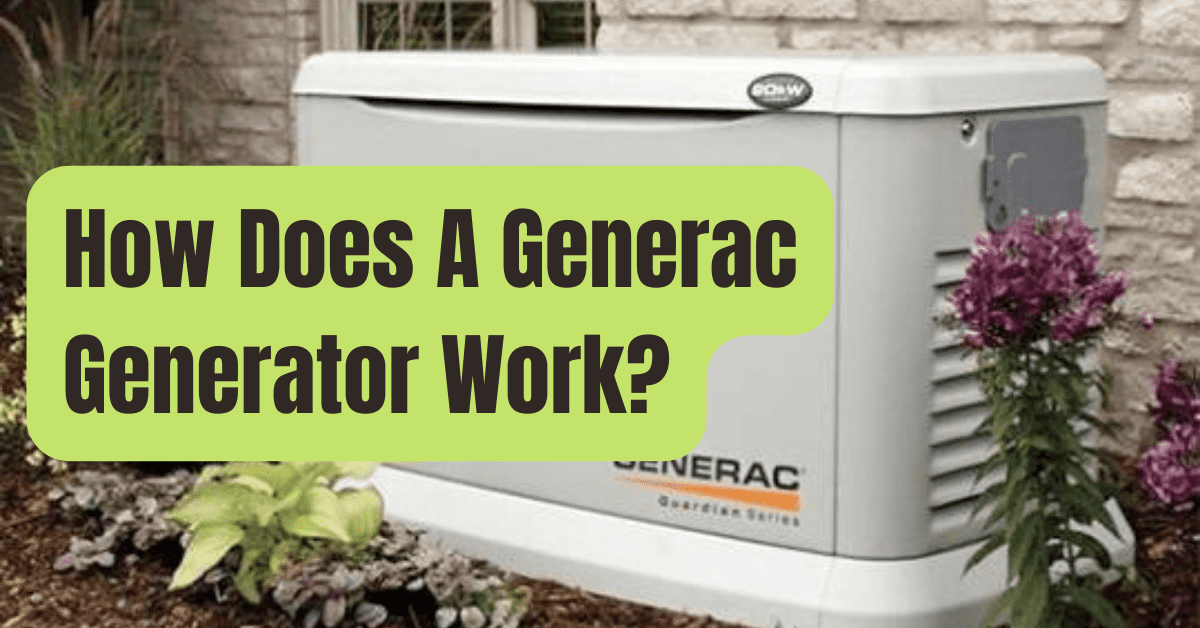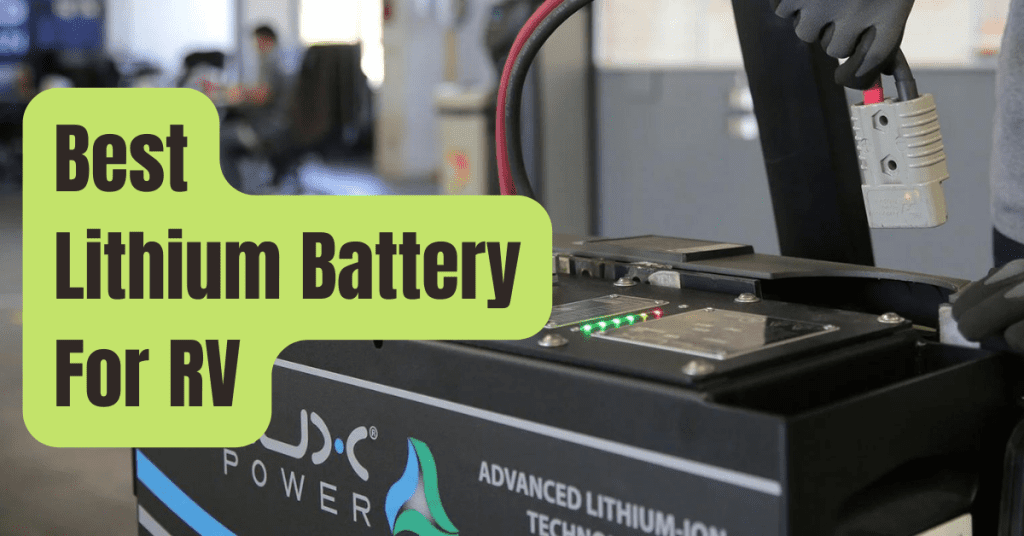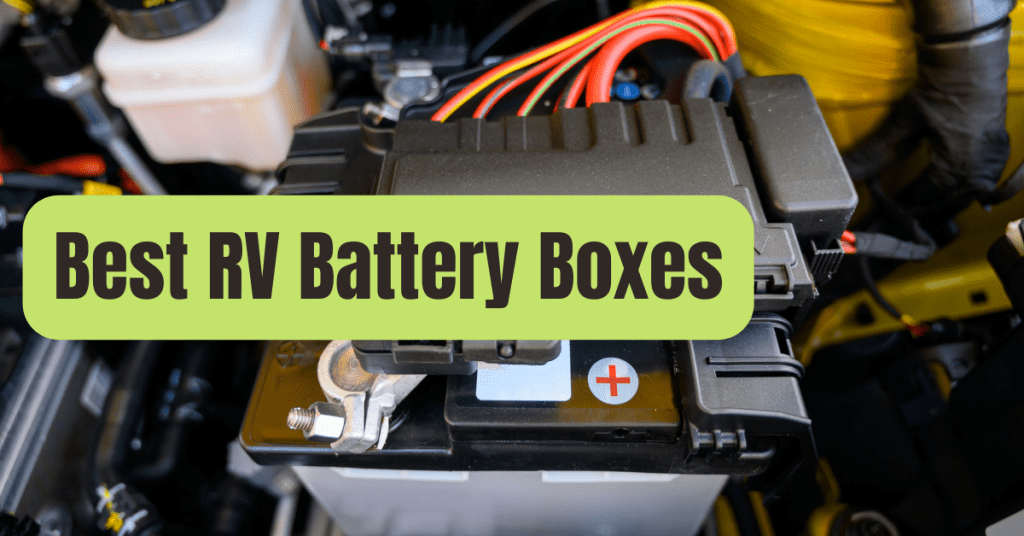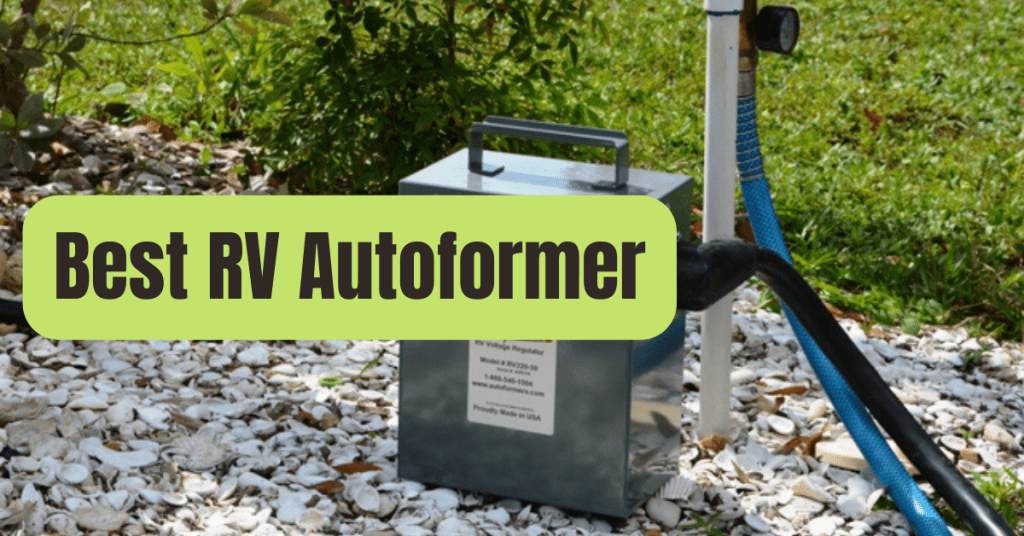Backup generators (also known as standby generators) are a great method to keep your house powered up during a power outage.
Generac has been the leading producer of home backup generators since 1959, offering clients with high-quality comfort and peace of mind in times of need.
So, what is a Generac and how does it work? We’ve got the answers to that and a lot of other questions down below.
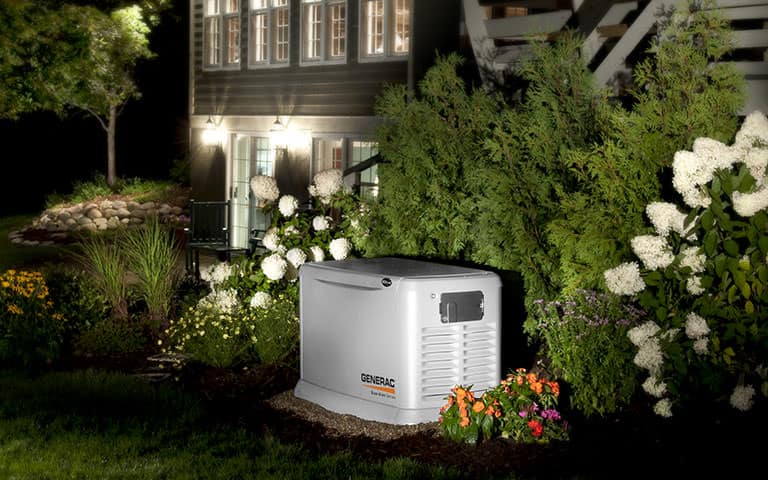
Prior to that, it’s worth noting that demand for generators has been unusually strong recently as a result of unprecedented weather-related power disruptions.
If you want a generator for your house, you should start the procedure as soon as possible so that your items may be bought and installed as soon as possible.
#1. How Does a Generac Backup Generator Work?
Generators may operate on liquid propane (LP) or natural gas from your house.
The standby generator, like your air conditioner, stays outside your house, waiting for the signal to turn on.
A backup generator, unlike a portable generator, starts automatically.
So, if the power goes out, all you have to do is sit back, relax, and wait for your appliances to turn on again!
What Exactly Are The Elements?
The engine and alternator, which work together to create power, are housed outdoors in a sound-deadening, weather-shielded box fixed on a concrete platform (also known as a hurricane pad).
The engine is powered by the fuel supply, which is linked to the generating unit, also known as an alternator.
It generates the same alternating current as your home’s electric utility.
Inside the home, the automatic transfer switch (ATS) links the generator to the main breaker panel.
The ATS selects the power source for the residence, which means it switches between utility and generator power.
When conventional power is working well, the ATS switches to utility power.
When there is a power outage or other problem, the ATS is notified and the backup generator is switched on.
The ATS automatically separates the residence from the electric utility lines when the generator is switched on, eliminating risk to utility employees and generator overloads.
When utility power is restored, the ATS will simply turn off the generator and revert to ordinary electricity.
Generac also features a “exercise” option, which allows you to set a predefined day and time for your generator to turn on and do a “workout.” The generator will operate for a few minutes every week or every other week at the stated time to warm up the engine and ensure everything is operating properly, then shut down.
There will be no power disruptions or switch transfers at this time.
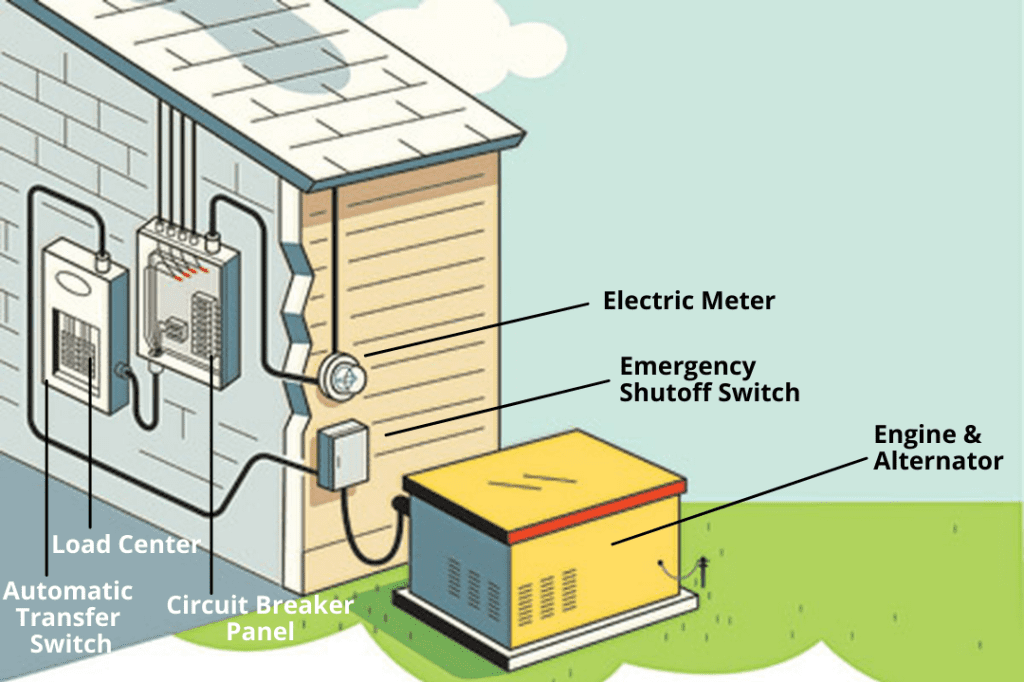
#2. When The Power Goes Out, How Long Does It Take To Turn On?
So, how long will it take for the backup power to turn on after all of these components have communicated that it is required? The power supply is not immediate; the generator will wait a few seconds to ensure that it isn’t merely a power flicker and that the outage is real.
With that in mind, the generator should be up and running in a minute or two.
That’s probably less time than you’d spend looking for a lighter and lighting a candle!
#3. Home Backup Power3: How Long Can a Generac Run?
If your generator runs on propane, it can operate indefinitely as long as there is adequate fuel.
For example, a 500-gallon tank that runs your whole house should last around a week if used 24 hours a day.
However, it is dependent on the size of the fuel tank and the number of appliances that the generator is powering.
If you have a generator that runs on natural gas from your house, it may operate endlessly as long as the gas is available.
#4. What Is the Loudness of the Generac Generator?
Permanent generators used in residential areas are required by law to not exceed a specific noise level, so you won’t have to worry about the noise or running out of power! The Generac Guardian line generates roughly 66 decibels when placed 20 feet away, compared to 68dB for typical central air conditioners.
These noises are comparable to a vacuum cleaner at 70 decibels and an electric mixer at 88 decibels.
#5. Can the Generator Be Installed Anywhere?
The generator should be placed as near as feasible to the electric and gas meters.
The generator must be positioned at least 18 inches away from your house and at a safe distance from doors, windows, and air intakes in order for exhaust fumes to be securely vented.
You’ll also need to seek permission from any HOAs and bear in mind any local community limitations.
Next, clean the space surrounding the gas meter or liquid propane tank, the service panel, and the concrete pad/generator installation position.
#6. Will It Be Enough to Power My Entire House?
Generac generators are popular for residential backup power because they may be adjusted to power only what you need.
If you just require a few appliances and can live without others, your generator will save you money by not wasting electricity.
Generacs also include a function called “load shedding,” which allows you to switch off some appliances while others are running.
When the system draws too much power, you get to determine the order in which components are turned off.
You may, for example, program it to turn off the television when you need to use the microwave — or whatever works best for you and your family.
#7. What Is The Price Of A Generac Generator?
The cost of a backup Generac depends on the product line and the number of kilowatts.
It’s also worth noting that some of these costs include both the transfer switch and installation, while others simply include the generator.
Because each property is unique, each installation will be as well.
The average cost of installation is determined on the location, the amount of supplies necessary, where you reside, and whether you’re using LP or natural gas.
A free in-home evaluation with a local contractor is the best method to acquire a complete and accurate price.
The cost of running your generator is entirely dependent on the kind of fuel you choose (liquid propane or natural gas) and the number of appliances you want to power.
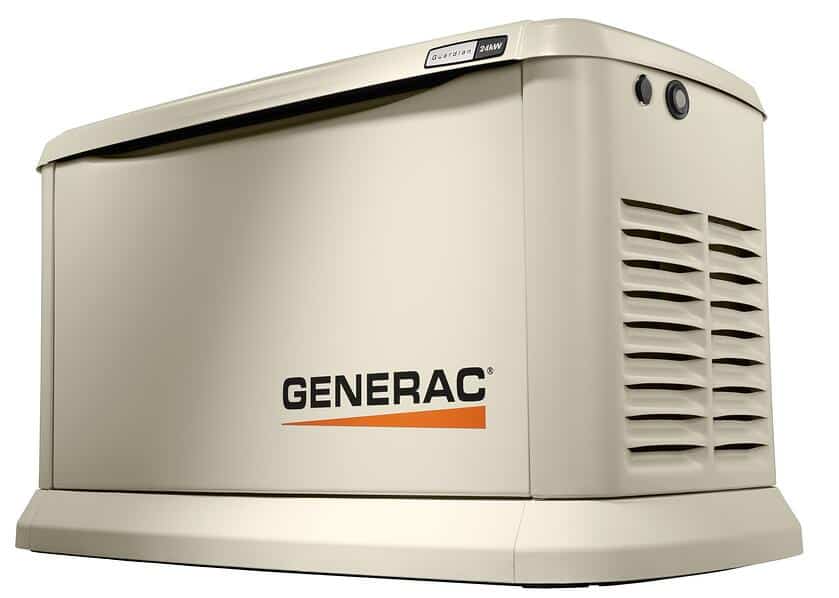
#8. Will The Generator Need Professional Installation And Maintenance?
Will the generator need professional installation and maintenance?
Generac provides pre-packaged and pre-wired Guardian Series systems with detailed installation instructions as an option.
You may either do the basic site preparation stages yourself and have a professional connect the electrical panel and fuel lines, or you can do everything yourself.
However, Generac recommended that you hire a qualified contractor or an authorized Generac dealer for safety reasons.
A professional will be familiar with local and national regulations and will be able to put, ground, and connect the generator securely.
An expert contractor will also ensure that all minor aspects are covered, which if overlooked might result in a gas leak, explosion, deteriorated air quality, fire dangers, and expensive repairs.
Your generator, like your air conditioning and heating systems, should be serviced once a year.
Replacing the oil and oil filter, changing the air filter, cleaning the exterior and interior of the generator, and checking/changing the batteries and terminals, to mention a few, are all part of an ECI Comfort generator tune-up.
Make an appointment for a generator tune-up.
#9. How Do I Pick the Right Size?
The correct size generator depends on where you live, how big your house is, and if you want to power your whole house or simply a few appliances.
You may pick the proper choices and choose particular objects you’d want to power using Generac’s helpful size calculator to see the three best alternatives for your house.
By selecting the button below, you can also download our wattage worksheet.
While these online tools may help you figure out what size generator is ideal for your requirements, you should still have a contractor come out to your house and go through your alternatives with you.
#10. What’s the Difference Between a Standby Generator and a Portable Generator?
The key distinction of a portable generator is that it can be used for a variety of purposes, including your house, camping, and tailgating.
On the other hand, a backup generator is permanently located outside your house.
Another significant distinction is that backup generators automatically turn on and off, while portable generators have a manual transfer switch, requiring you to manually turn it on and off.
Portable generators are affordable and simple to get, but they have a limit on the number of goods they can power.
Standby generators are more costly and might take a long time to arrive (particularly right now), but they supply continuous power for as many gadgets as you desire.
How Does A Generac Generator Work? Videos Suggestions From Youtube

